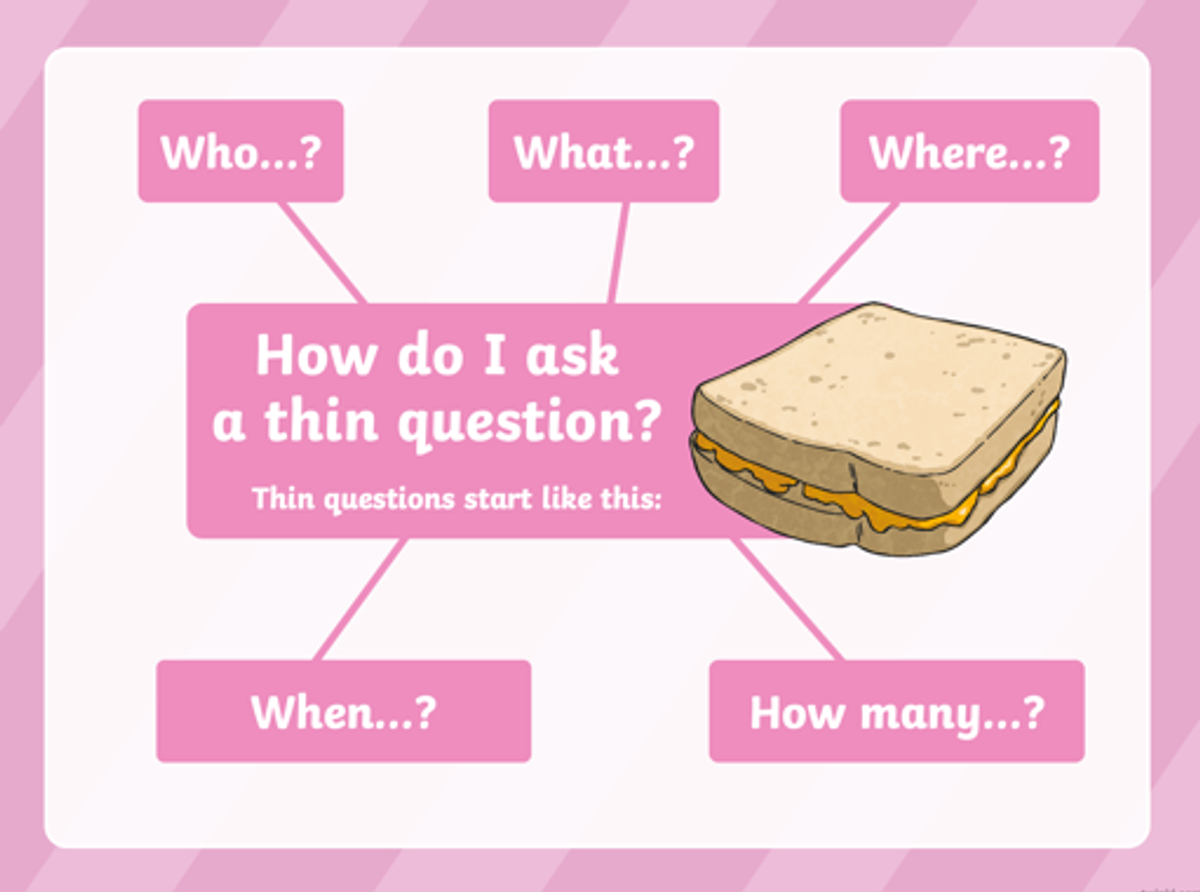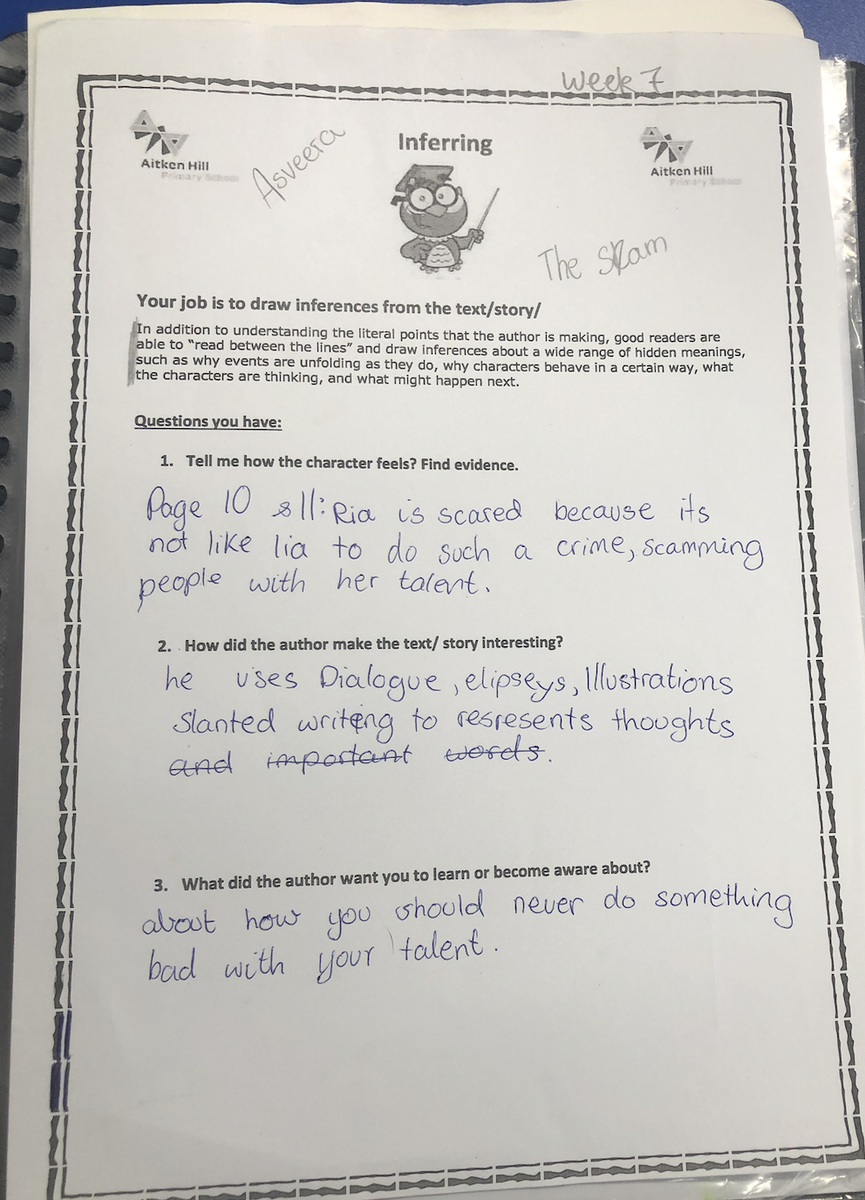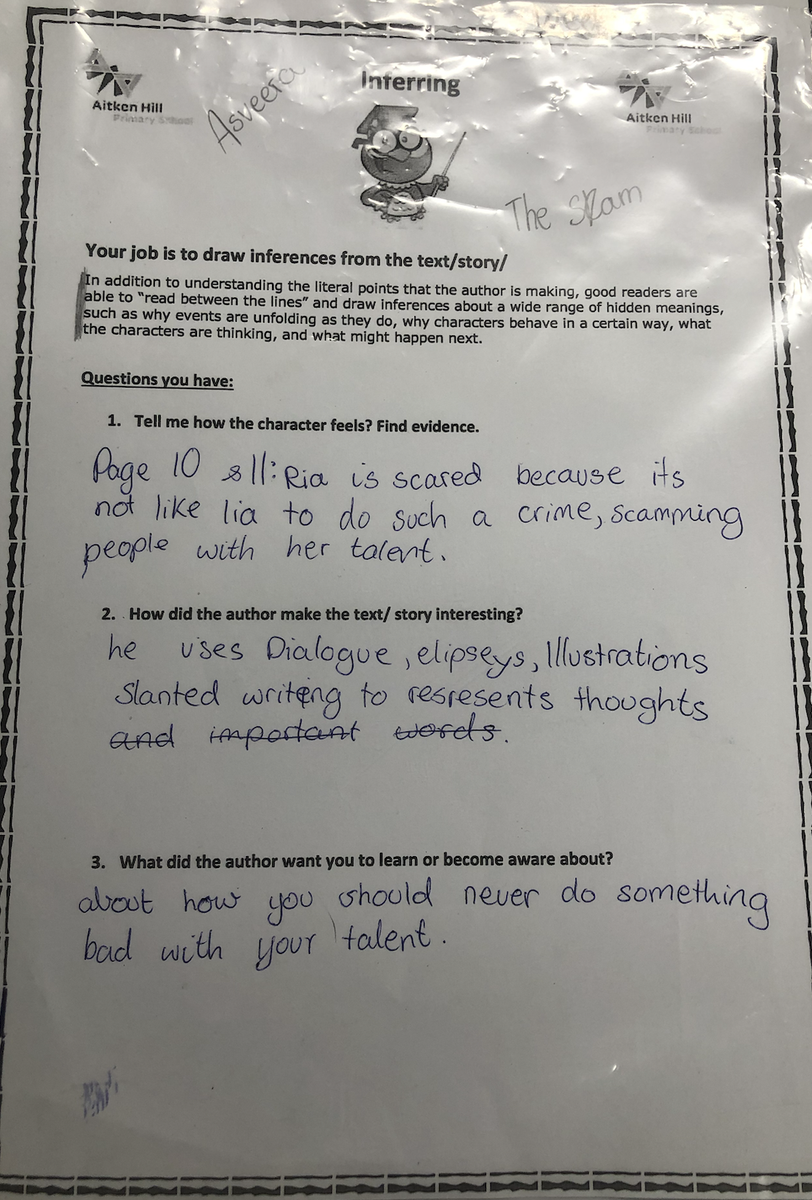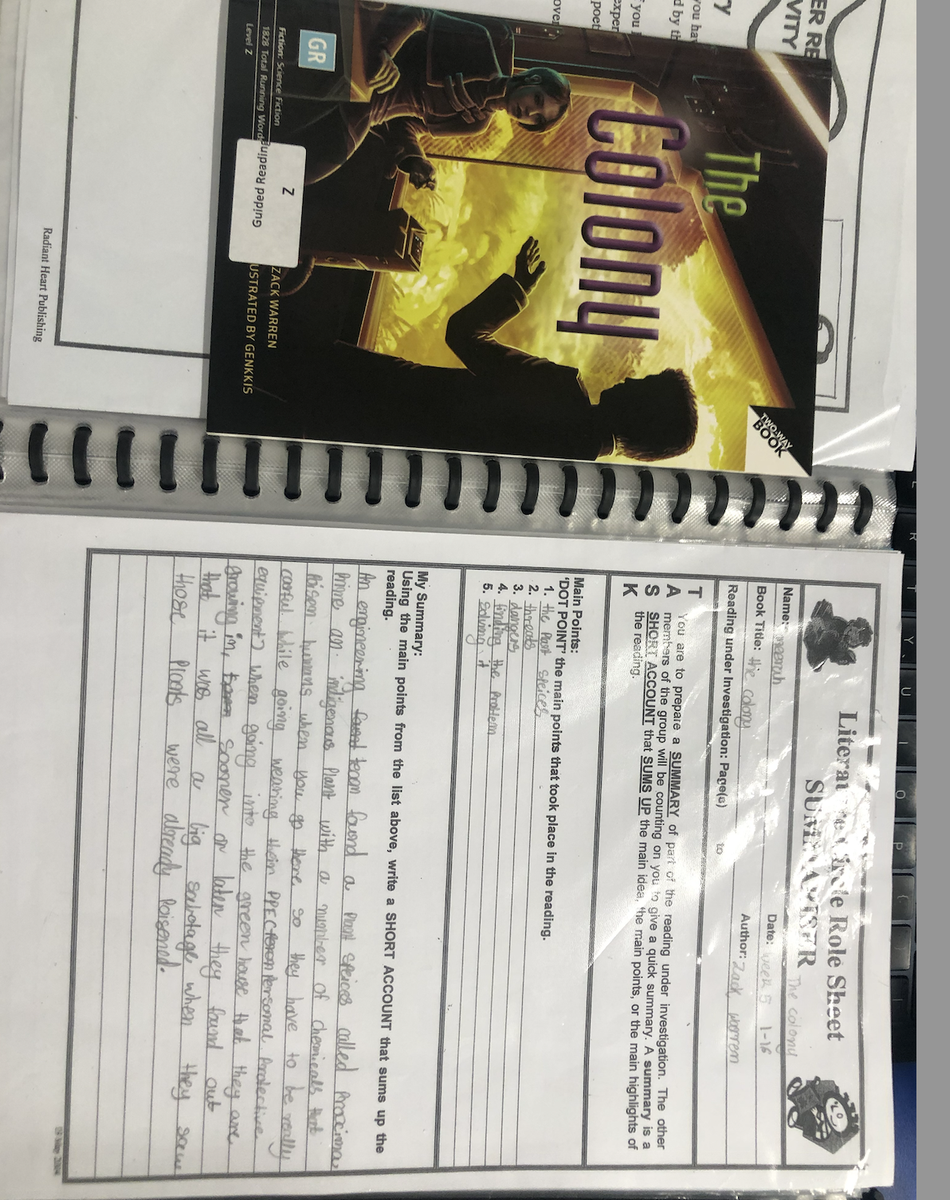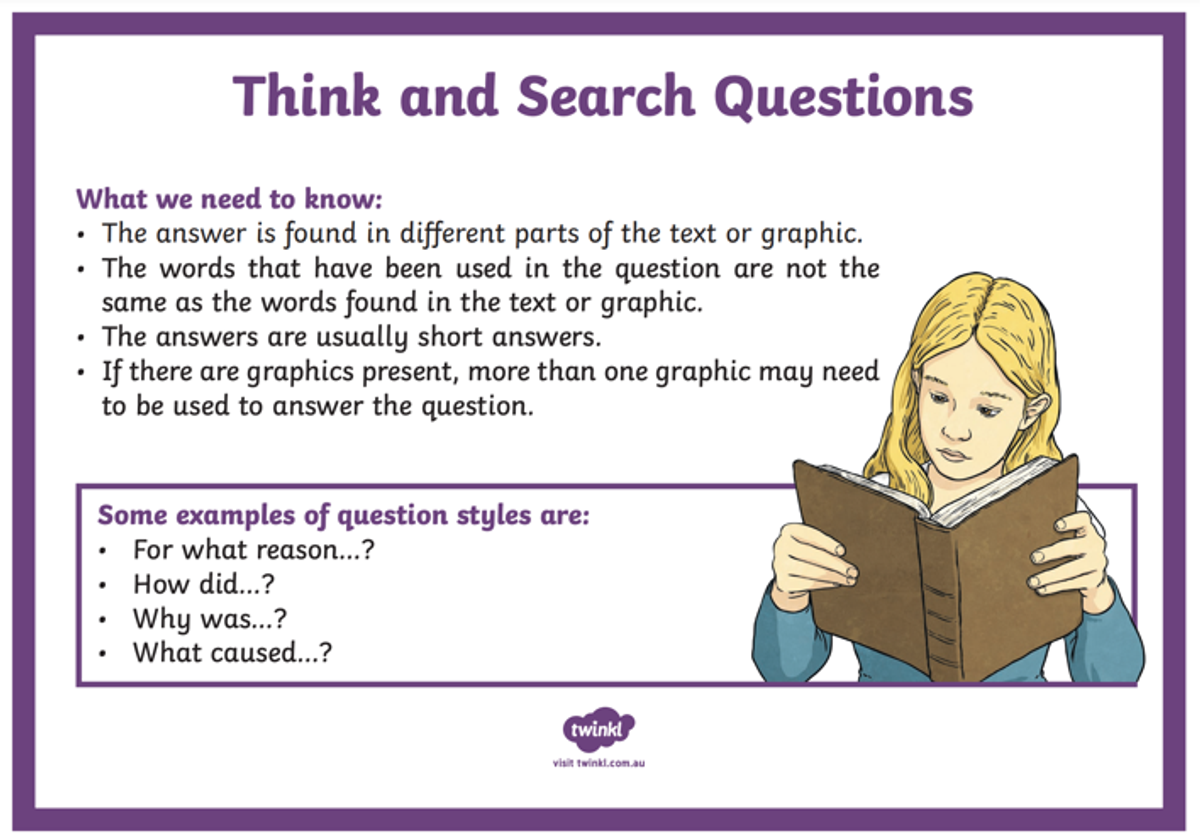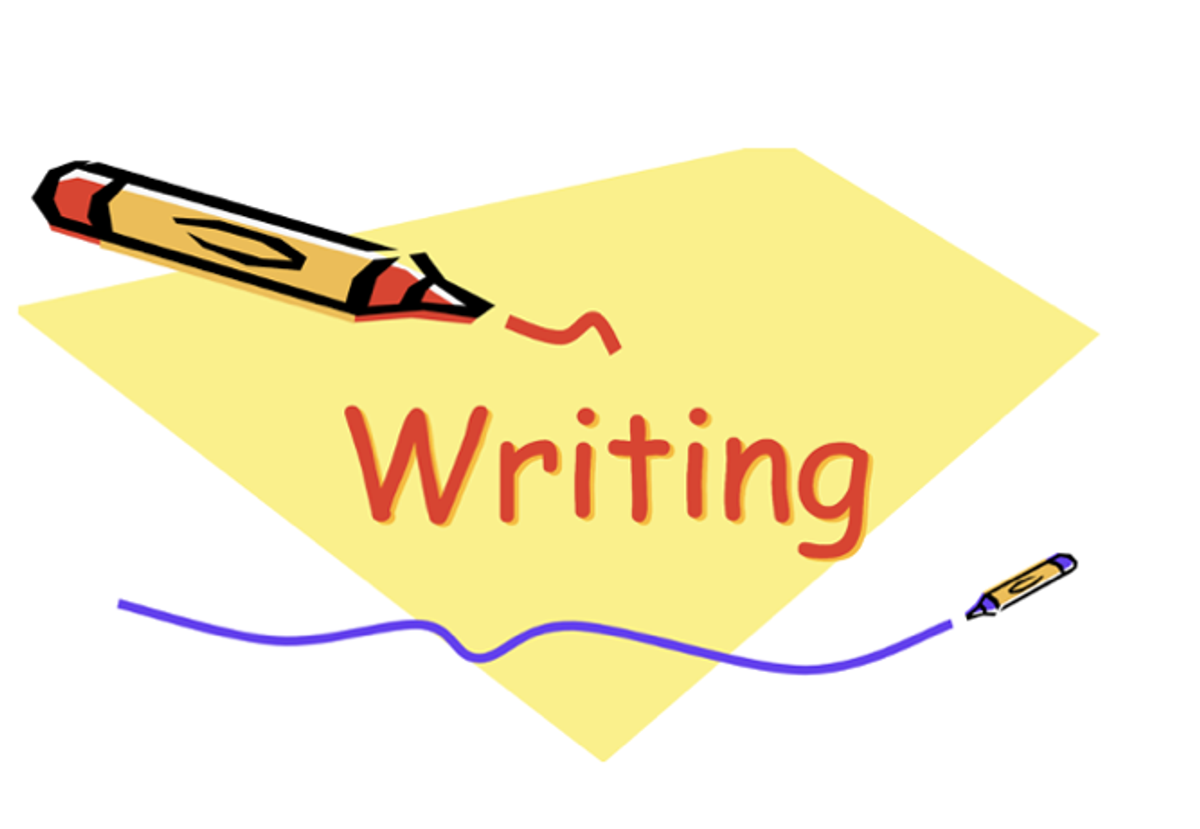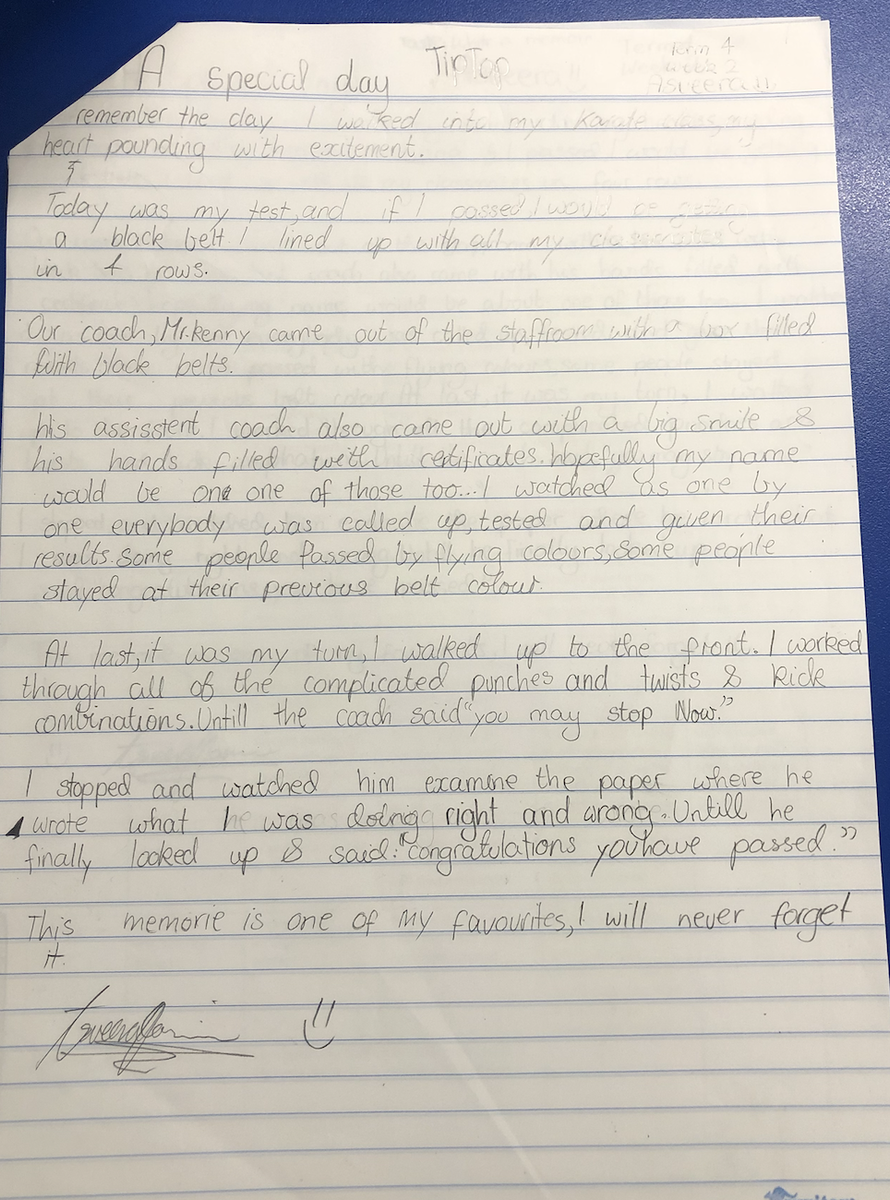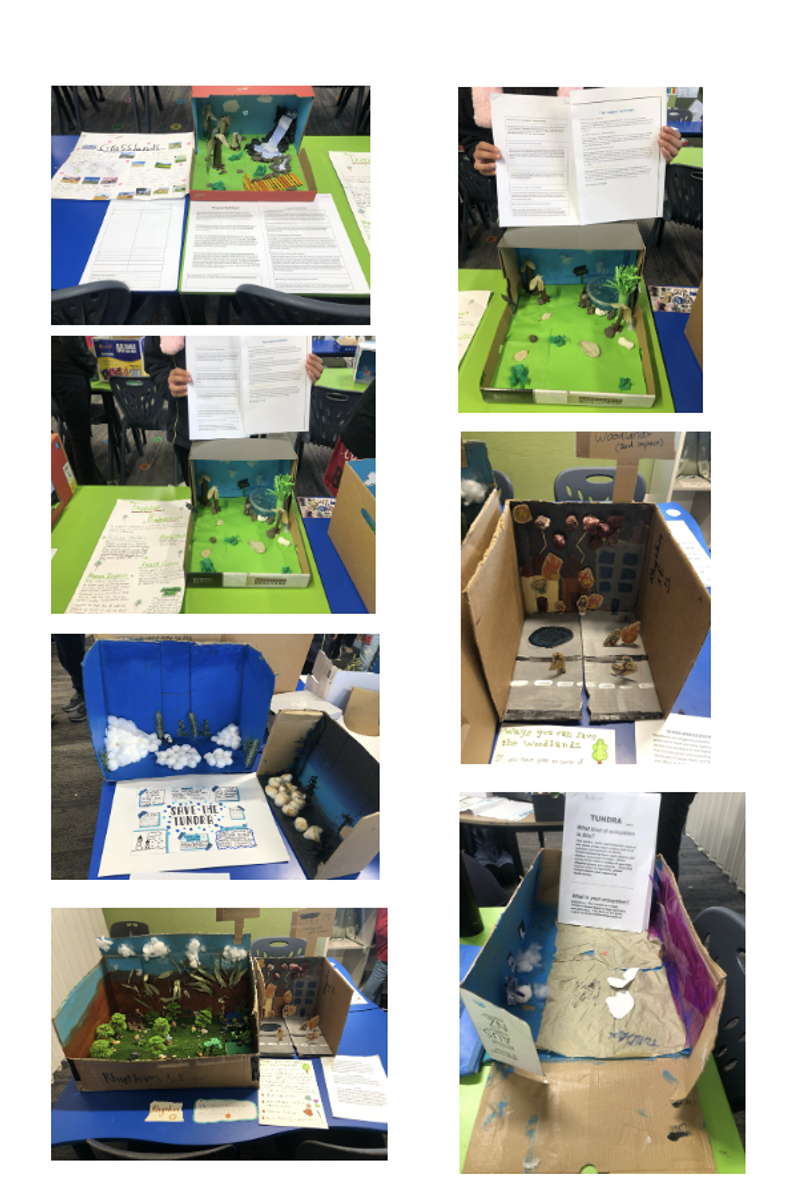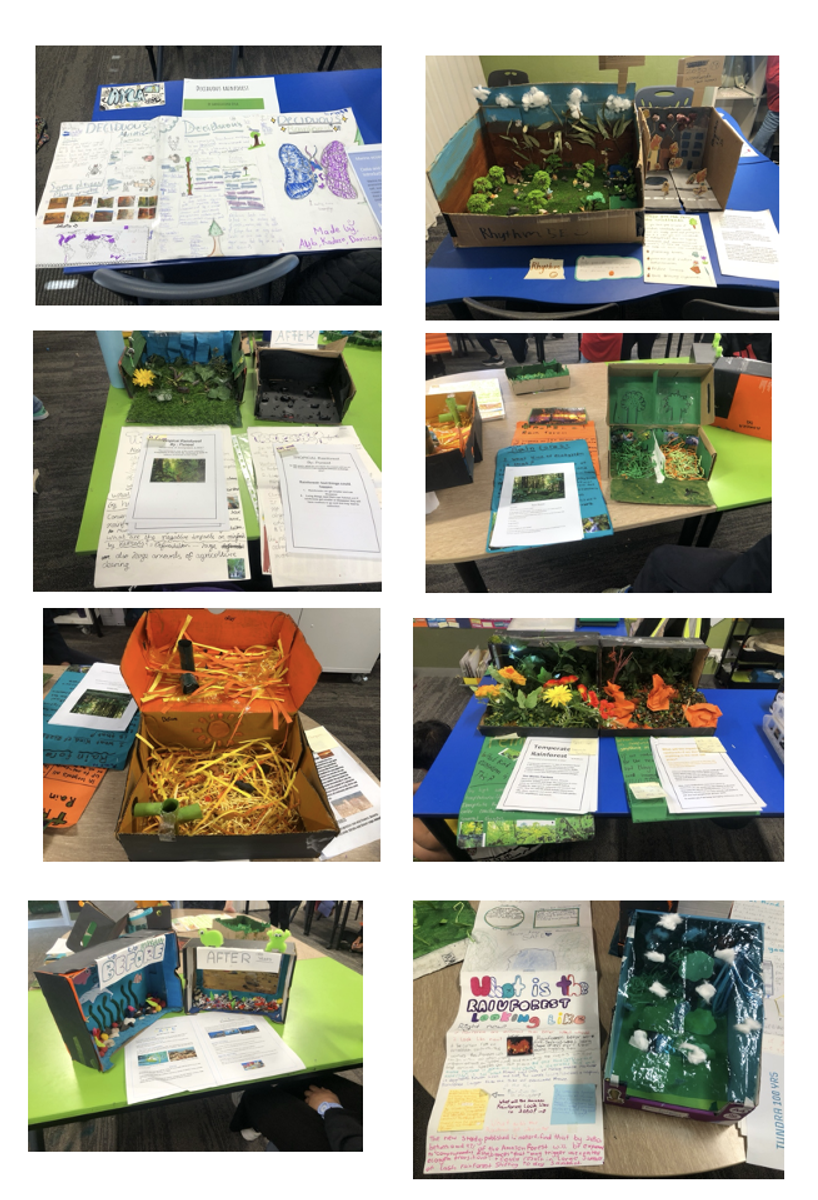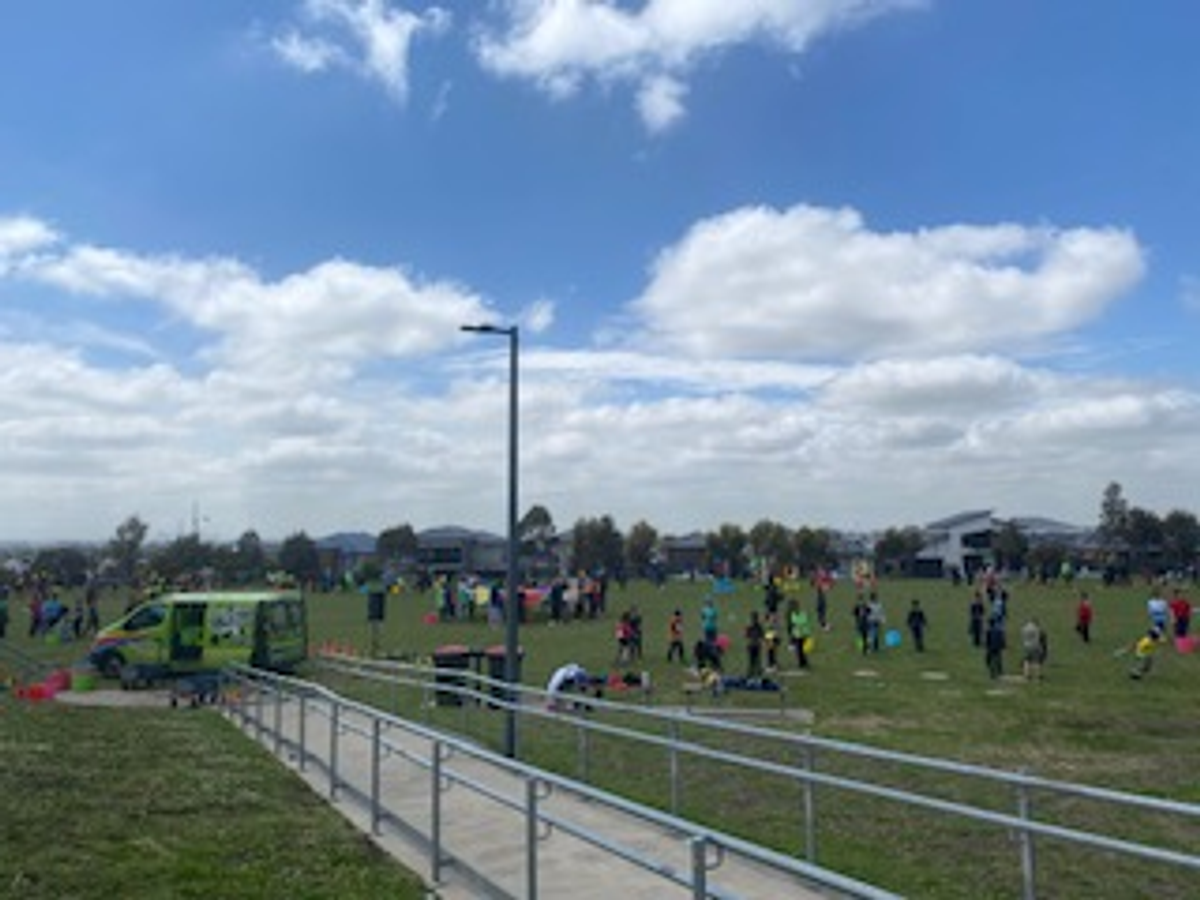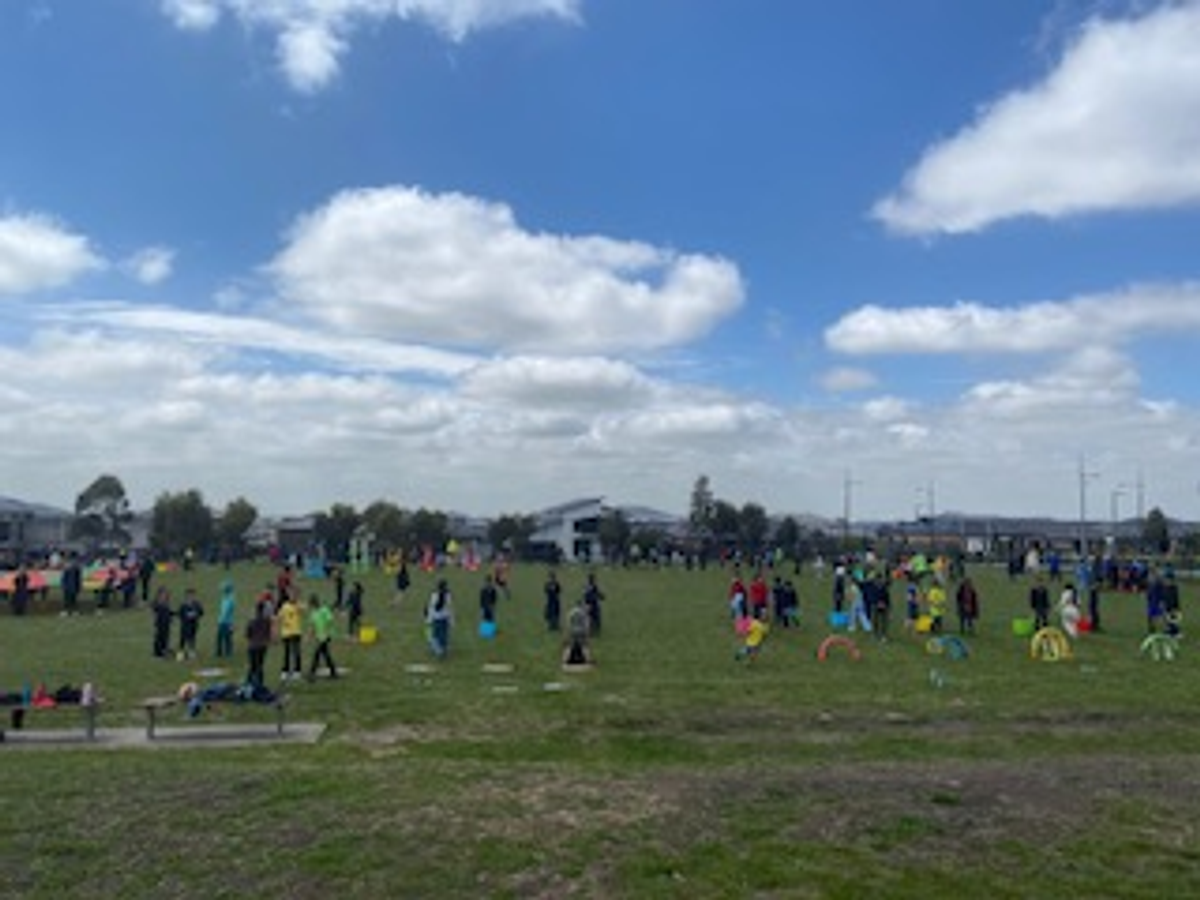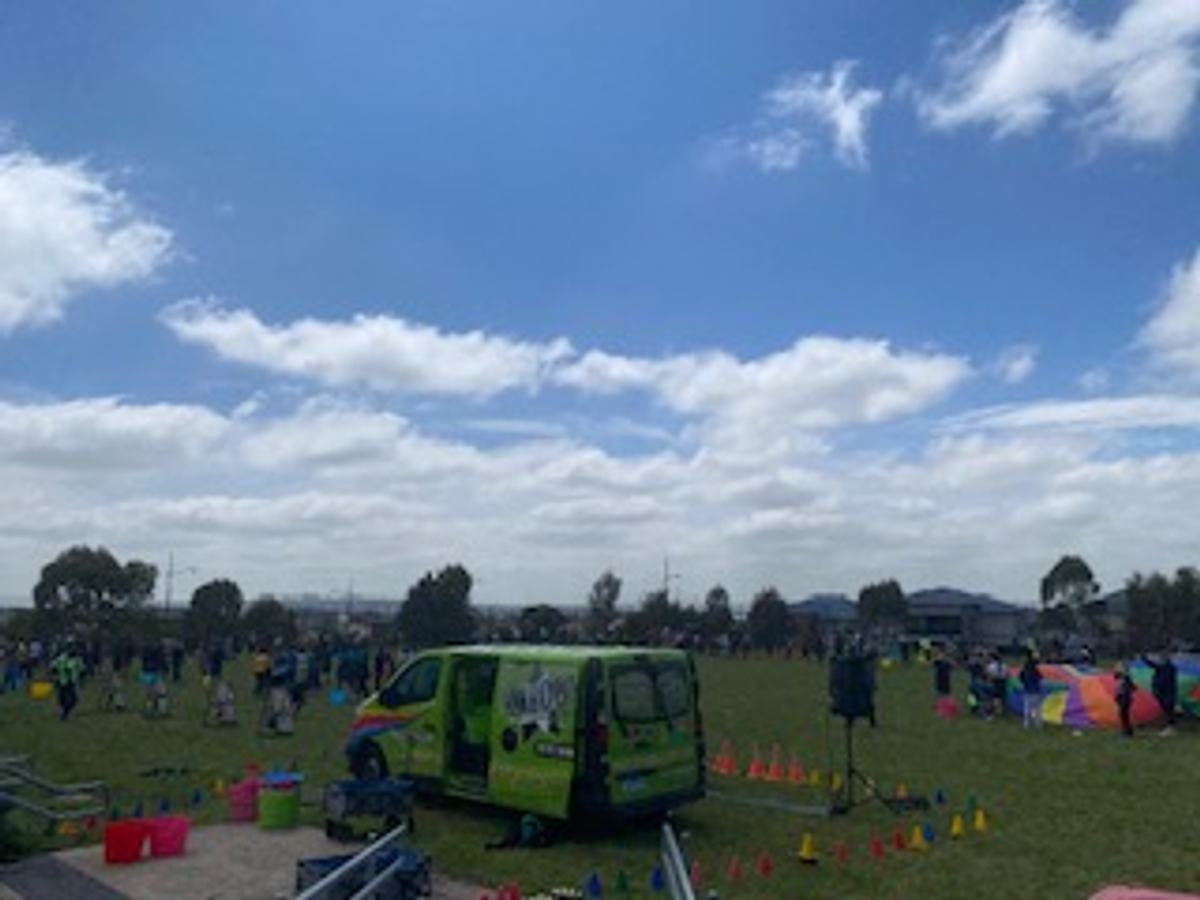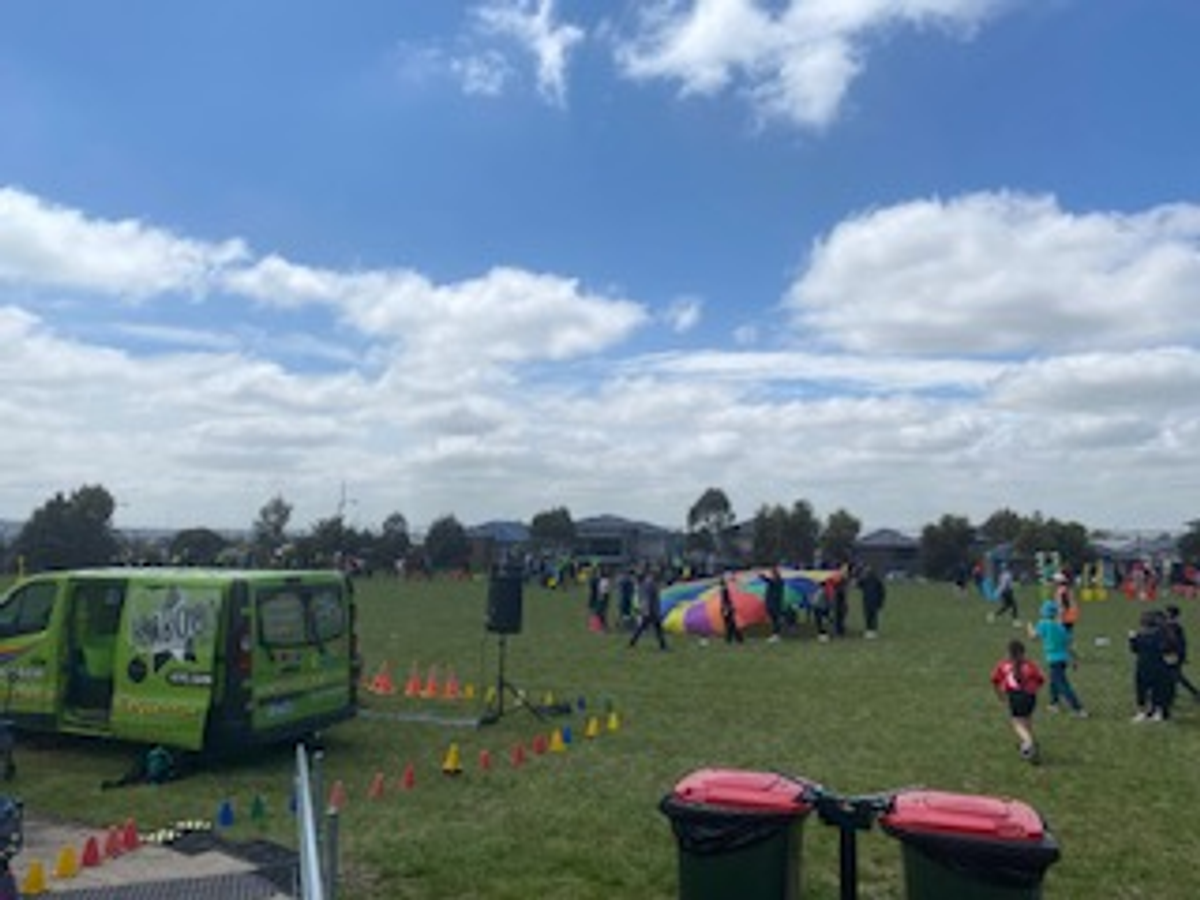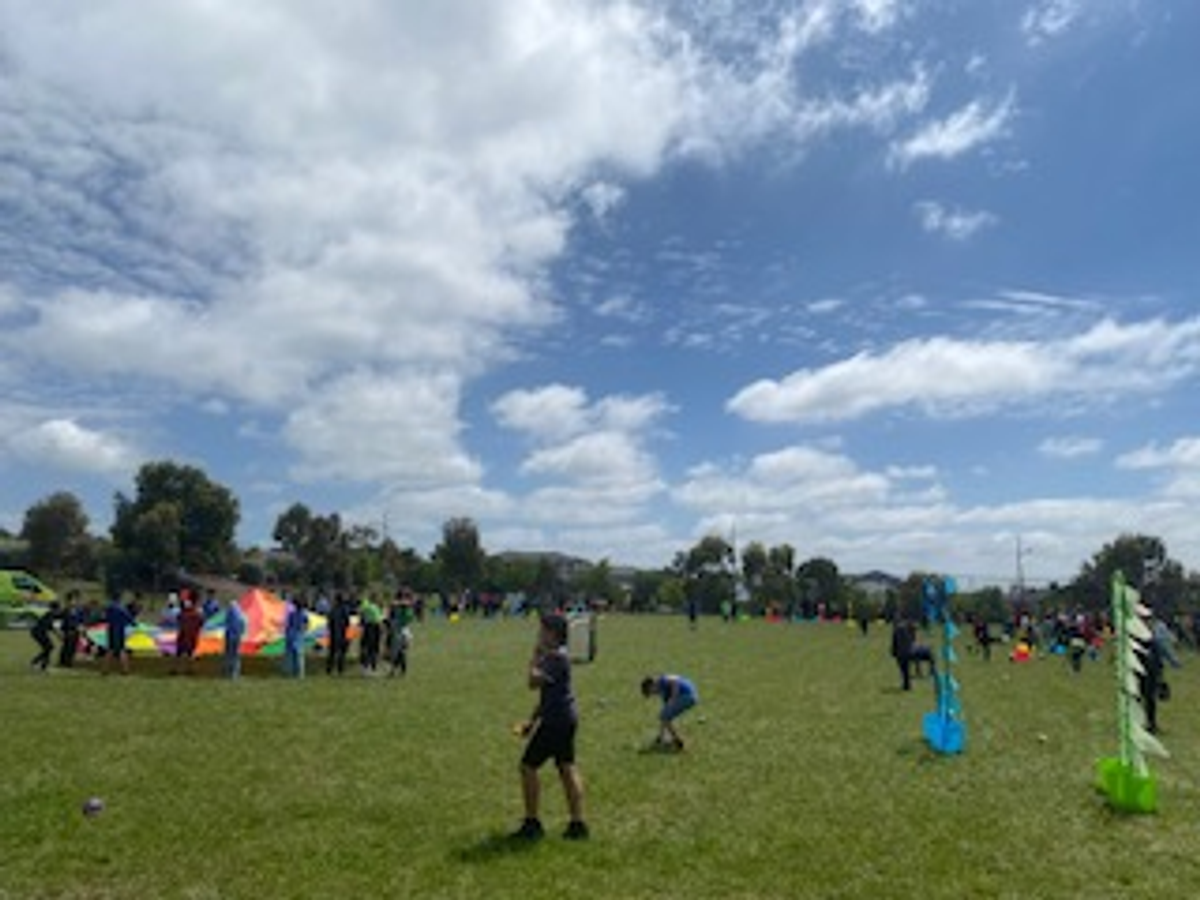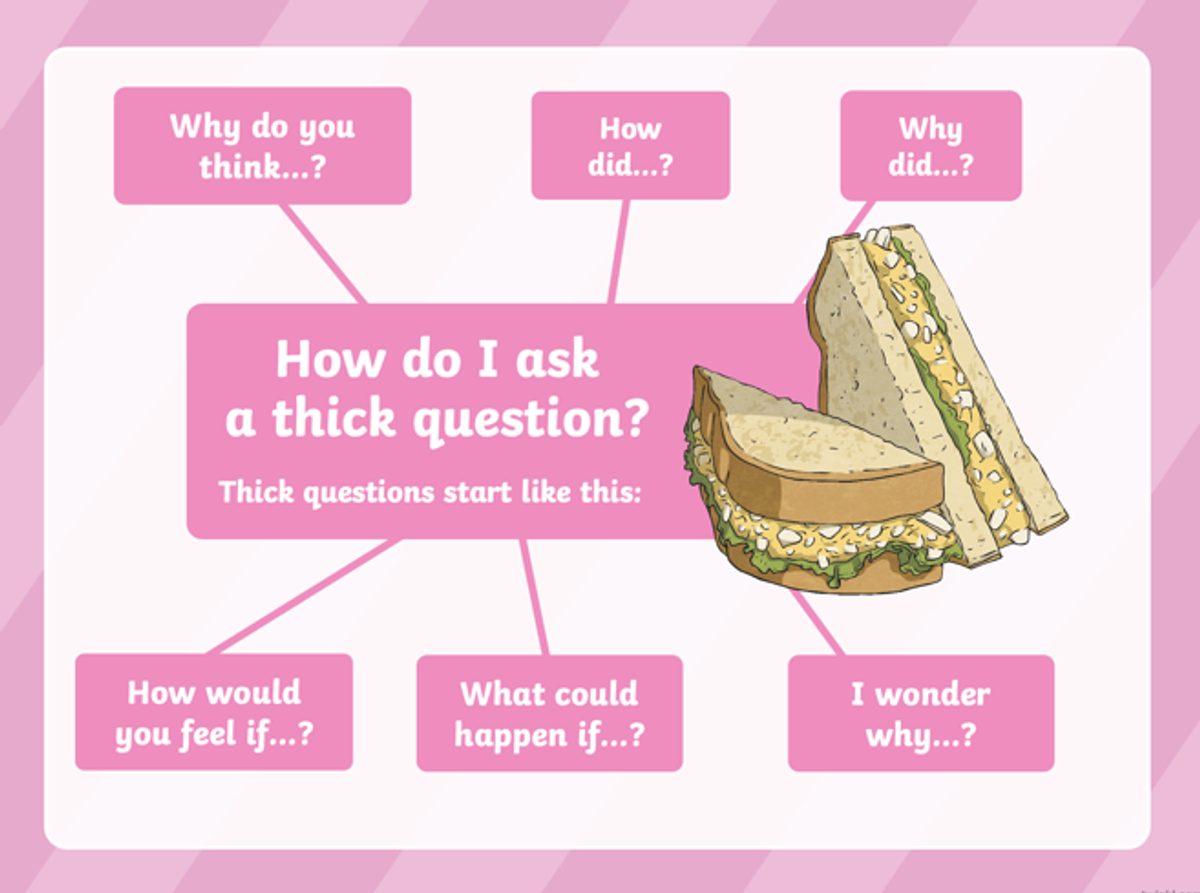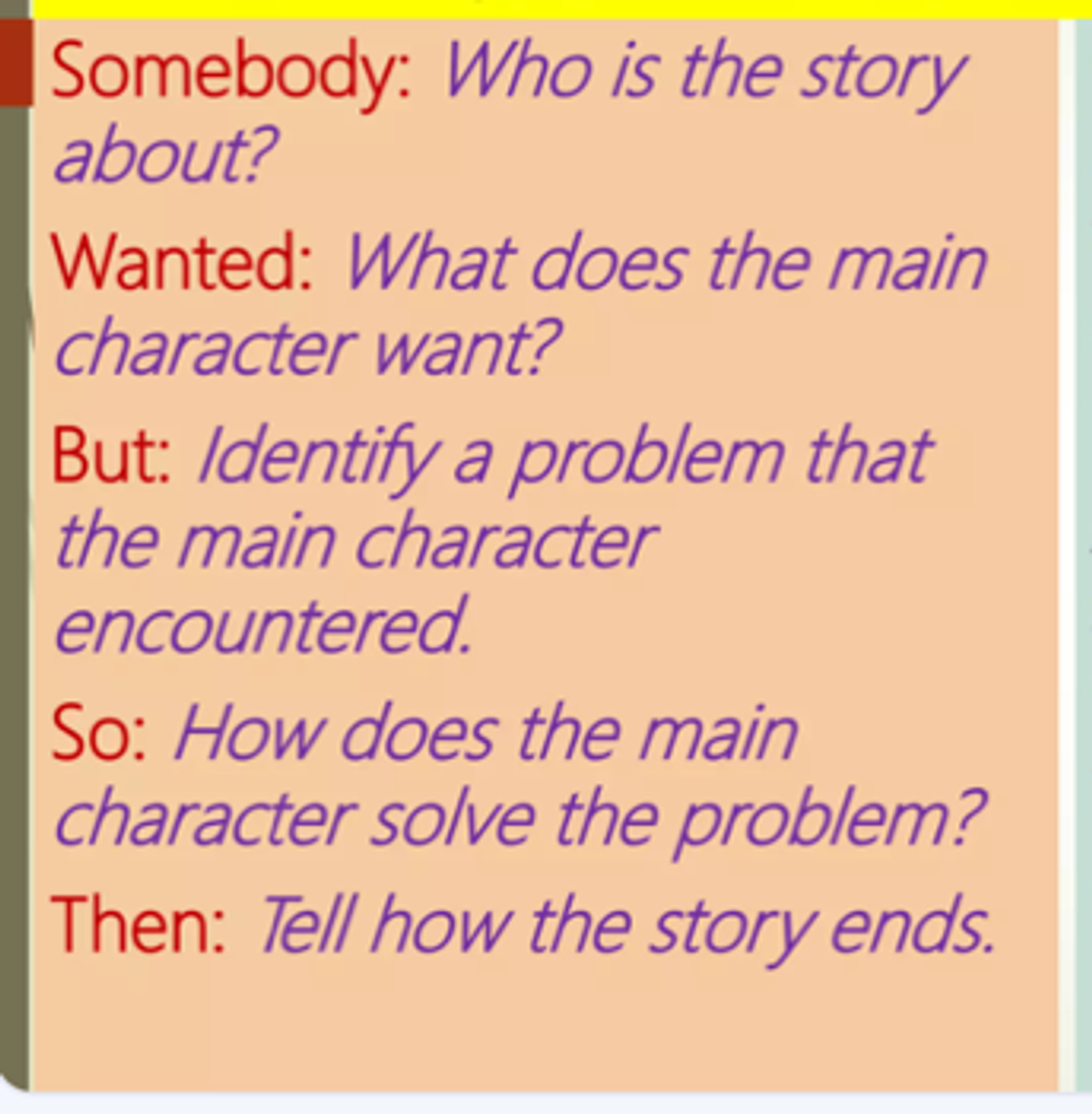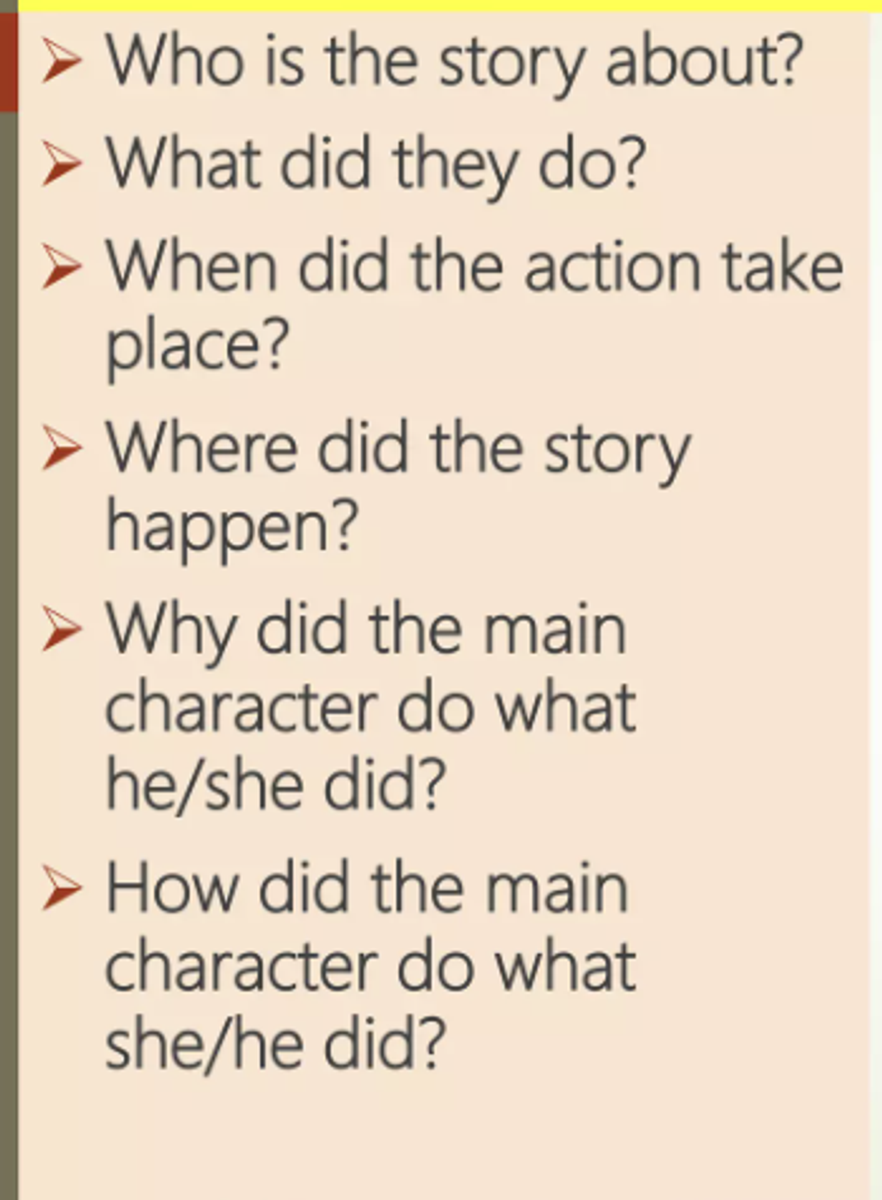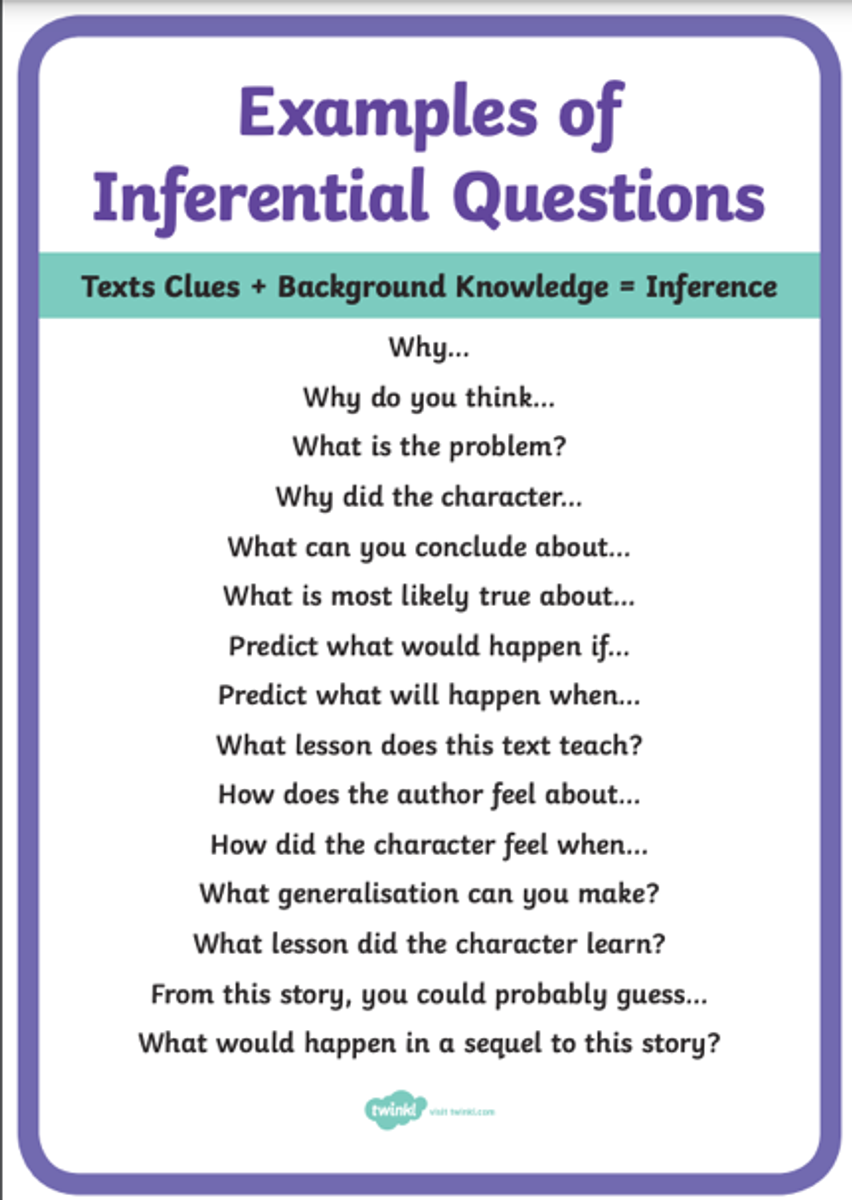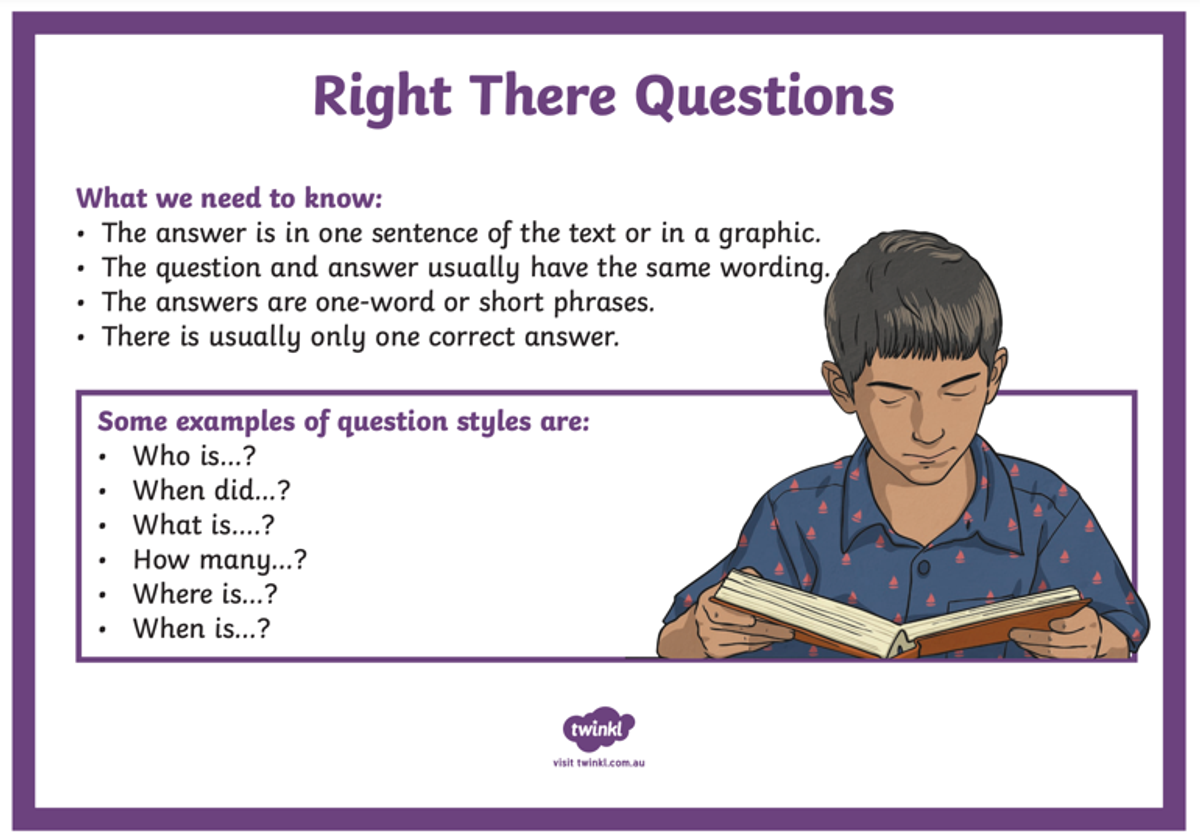Monarch Community Report

AHPS November 2024
Monarch Community
Reading
Reading Comprehension Strategy- Questioning
- Literal Questions
- Right There Questions
- Inferential Questions
- Evaluative Questions
- Clarifying Questions
- Summarising Questions
- Open Ended Questions
Literal Questions:
- Definition: These are questions that ask for information directly stated in the text.
- Examples:
- What is the main character's name?
- Where does the story take place?
- What happened first in the story?
Open-Ended Questions:
- Definition: These questions do not have a specific answer and encourage students to think critically and express their thoughts and opinions.
- Examples:
- How do you feel about the story's ending?
- What would you do if you were the main character?
- What was your favourite part of the story and why
Right There Questions:
- Definition: Similar to literal questions, these are questions where the answer can be found directly in the text, usually in a single location.
- Examples:
- What colour was the character's hat?
- How old is the character?
- What time did the event happen?
Inferential Questions:
- Definition: These questions require students to make inferences or educated guesses based on information in the text and their own knowledge.
- Examples:
- Why do you think the character did that?
- How do you think the story will end?
- What might happen next?
Evaluative Questions:
- Definition: These questions ask students to form an opinion or make a judgment about aspects of the text, often requiring them to consider the text's themes or the author’s intent.
- Examples:
- Do you agree with the character's decision? Why or why not?
- What do you think is the main message of the story?
- Was the ending satisfying? Explain your answer.
Summarising Questions:
- Definition: Summarising questions help students recall and condense the main ideas or events of a text.
- Examples:
- Can you summarise the story in a few sentences?
- What were the main events in the chapter?
- What are the key points of the story?
Think and Search Questions
- Definition: These questions require students to search through different parts of the text and piece together information to find the answer.
- Examples:
- How are the two main characters alike?
- What events led to the climax of the story?
- What details support the main idea?
NUMERACY- Strand: Number-
Recount/ Memoir
Students’ examples
Term 3- Inquiry- Project: Ecosystems
Kaboom Sports
On the 23rd of October, the Grade 5 cohort participated in a fun-filled activity run by Kaboom Sports. Students spent two hours rotating from one activity to another, developing their sports skills along the way.
Friendly Reminders & Important Dates For 2024:
Please remember:
- Please ensure your children are attending school as “It is not ok to be away”.
- Students complete 15-20 mins of reading as AHPS homework, and it should be recorded in their school diaries. The diary should be returned to school either daily or weekly for their teacher to sign.
- Brain food is fruit or vegetable snacks that children may eat in class. It is important to include this as an additional snack in their lunch box.
- Students are encouraged to bring gel pens or coloured pens to school, to be used for their reflective journal.
Much appreciated, From the Monarch Community 2024.


